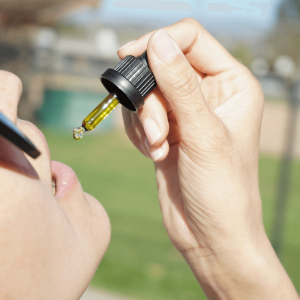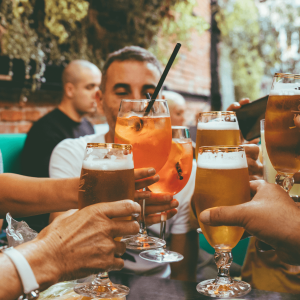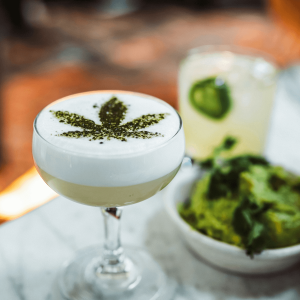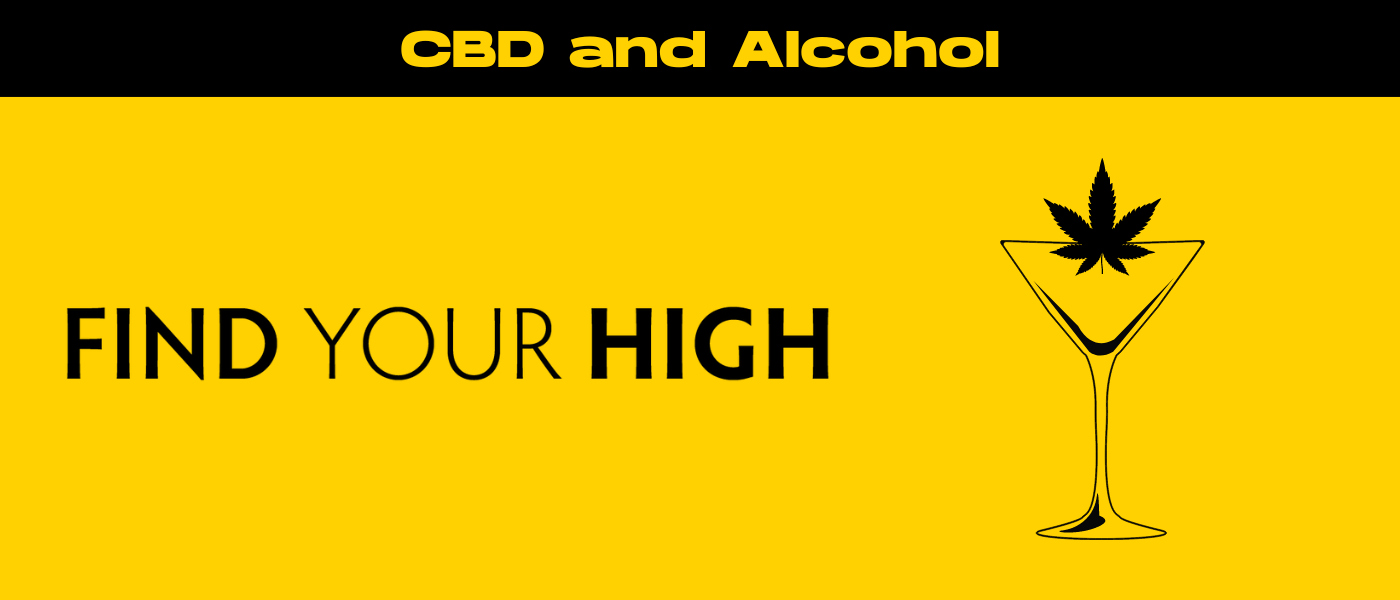In recent years, Cannabidiol (CBD) has surged in popularity, showing up in everything from lattes to lotions. Meanwhile, alcohol remains a staple of social gatherings and relaxation rituals, evolving in trends from craft beers to artisan cocktails.
With both substances becoming central to many lifestyles, understanding their interaction is crucial for those prioritizing health and wellness.
This blog will explore CBD and alcohol, taking a close look at their individual effects, how they might interact, and what this means for consumption. Let’s get started!
What is CBD?
Cannabidiol (CBD) is a naturally occurring compound found in the cannabis plant, known as a cannabinoid. Unlike tetrahydrocannabinol (THC), CBD doesn’t produce a psychoactive ‘high,’ making it popular among those seeking symptom relief without the mind-altering effects of marijuana.
The legal status of CBD varies around the world. In the United States, the 2018 Farm Bill legalized hemp-derived CBD products with less than 0.3% THC. However, state regulations can differ, with some states having stricter controls on CBD products.
In Europe, CBD is generally accepted, although each country has its own laws and guidelines. In regions like Asia, CBD is still heavily regulated or banned.
Common Uses of CBD
CBD has gained attention for its numerous health benefits. For example, it’s often used to reduce anxiety and stress, providing a natural option for those with chronic anxiety or situational stress. Research shows that CBD can help alleviate pain by interacting with the body’s endocannabinoid system, which controls various physiological processes. CBD also has anti-inflammatory properties that can help manage conditions like arthritis and muscle soreness.
CBD products come in various forms such as oils, edibles, capsules, and topicals. CBD oil is typically taken under the tongue for quick effects, while edibles and capsules offer a longer-lasting release, making them ideal for extended relief. Topical creams and balms are used for targeted relief of muscle and joint pain.
The effectiveness of CBD comes from its interaction with the endocannabinoid system, a complex cell-signalling system found in all mammals. This system is crucial for maintaining balance, affecting mood, sleep, appetite, and immune response. By binding to receptors in this system, CBD helps regulate these functions, supporting overall health and wellness.

What is Alcohol?
Alcohol, known scientifically as ethanol, is a psychoactive substance that humans have consumed for thousands of years. Its history dates back to ancient civilizations, with evidence suggesting beer was brewed as early as 5,000 BC in Mesopotamia. Over time, various cultures have developed unique alcoholic beverages, from East Asia’s rice wine to the Mediterranean’s grape wine.
Alcohol holds significant cultural importance in many societies. It has been used in religious rituals, social gatherings, and for relaxation and celebration. Cultures have cultivated traditions around alcohol consumption, from German beer gardens to Japanese sake ceremonies.
There are three main types of alcoholic beverages: beer, wine, and spirits. Beer is made from fermented grains like barley, wheat, or corn. Wine is produced by fermenting grapes or other fruits. Spirits, such as vodka, whiskey, and rum, are distilled beverages with higher alcohol concentrations.
How Alcohol Affects the Body
The short-term effects of alcohol consumption can be felt within minutes of drinking. Mild to moderate alcohol intake often results in a feeling of relaxation and euphoria, as it lowers inhibitions and induces a sense of well-being.
However, even small amounts of alcohol can impair motor skills, reaction time, and judgment, increasing the risk of accidents and injuries. Additional short-term effects include dehydration, as alcohol is a diuretic, and hangovers, which are commonly experienced after excessive drinking.
Long-term alcohol abuse has more serious health consequences. Chronic heavy drinking can lead to liver disease, including fatty liver, hepatitis, and cirrhosis, which can be life-threatening. It can also result in alcohol cravings and alcohol addiction, known as alcohol use disorder, characterized by an inability to control drinking habits despite negative impacts on one’s life.
Mental health issues are also a significant concern with prolonged alcohol abuse. Individuals may experience anxiety, depression, and cognitive impairments, which can exacerbate existing mental health conditions and reduce overall quality of life. Frequent heavy drinking can weaken the immune system, making the body more susceptible to infections and diseases.
Combining CBD and Alcohol: What Happens?
The interaction between CBD and alcohol has not been extensively studied, leaving many questions unanswered. Existing research is limited but suggests that combining these substances may have both benefits and risks.
When taken together, CBD and alcohol both impact the central nervous system, potentially amplifying each other’s effects. This could result in heightened feelings of relaxation and sedation, but also increased drowsiness and motor impairment.
It’s important to distinguish between anecdotal evidence and scientific evidence, as many claims about the combined effects rely on personal reports rather than rigorous, controlled studies.
Potential Benefits of Mixing CBD with Alcohol
- Reduction of Some Negative Effects of Alcohol: Some preliminary studies suggest that CBD might help mitigate the adverse effects of alcohol, such as reducing hangover symptoms.
- Liver Toxicity: Research involving rodents indicates that CBD might treat alcohol-induced liver toxicity, offering a protective effect against liver damage.
- Alcohol Withdrawal: Anecdotal evidence and some small-scale studies report that CBD could help manage alcohol withdrawal symptoms, providing relief for those experiencing alcohol dependence.
Potential Risks of Mixing CBD with Alcohol
- Increased Sedation and Drowsiness: Combining CBD with drinking alcohol may lead to amplified feelings of tiredness and drowsiness, impacting one’s ability to perform tasks requiring alertness.
- Overconsumption and Overdosing: The combined effects of CBD and alcohol may lower inhibitions, leading to greater risks of overconsumption of either or both substances, which can have serious health consequences.

Tips for Safely Combining CBD and Alcohol
When combining alcohol and CBD, it’s essential to approach the practice with caution and mindfulness.
Firstly, monitoring dosage and practicing moderation are crucial. Start with a low dose of CBD and limit alcohol consumption to avoid potential overconsumption and heightened effects due to elevated blood alcohol levels.
It’s also vital to consult with healthcare professionals before mixing these substances. They can provide personalized advice, taking into account your health status and any medications you may be taking.
Additionally, be aware of individual differences and reactions; what works for one person might not work for another. Knowing your own tolerance and response to both CBD and alcohol can help you make safer choices.
Alternatives to Mixing CBD and Alcohol
For those who want to appreciate the benefits of both CBD and alcohol without combining them, consider alternating between the two.
You could use CBD to unwind during the week and reserve alcohol for social occasions over the weekend. This approach allows you to enjoy the relaxing effects of both substances without the potential risks associated with their combination.
Alternative Ways to Relax and Unwind
If you’re seeking alternative methods to relax and unwind, there are plenty of options beyond mixing CBD and alcohol. Mindfulness practices, such as meditation and yoga, can provide significant mental and emotional relaxation. Engaging in regular physical exercise, such as walking, swimming, or cycling, is another excellent way to reduce stress and improve well-being.
You might also explore hobbies that bring you joy and peace, whether it’s reading a book, crafting, or spending time in nature. Aromatherapy, with the use of essential oils, can also create a calming atmosphere to help you relax and de-stress after a long day.

Conclusion
In summary, we’ve looked at the pros and cons of mixing CBD and alcohol. On the plus side, CBD might reduce some negative effects of alcohol like hangover symptoms and liver toxicity. It could also help with alcohol withdrawal symptoms. However, combining these substances can increase sedation and drowsiness, which might lead to overconsumption and health issues.
It’s important to do personal research and talk to healthcare providers before mixing CBD and alcohol. Professional advice can be tailored to your specific health conditions and medications, ensuring safer and more informed choices.
The decision to mix CBD with alcohol should be made carefully, considering your own tolerance and health status. By staying informed and cautious, you can enjoy the benefits while minimizing the risks.
FAQs
1. Can you drink alcohol and take CBD?
While it is possible to consume alcohol and take CBD together, it’s crucial to proceed with caution. Both substances can affect the central nervous system, potentially amplifying each other’s effects. This can lead to increased feelings of relaxation and sedation, but also heightened drowsiness and motor impairment. Consulting a healthcare professional before combining CBD and alcohol is recommended to ensure it’s safe for your specific health situation.
2. Does CBD increase alcohol tolerance?
There is limited research on whether CBD increases alcohol tolerance. Anecdotal evidence suggests that some people might experience reduced sensitivity to alcohol’s effects when taking CBD, but this is not universally reported. More scientific studies are necessary to understand how CBD might influence alcohol tolerance and metabolism.
3. Does CBD help after drinking?
Some preliminary studies indicate that CBD might help mitigate the adverse effects of alcohol consumption, such as hangover symptoms. Additionally, anecdotal evidence suggests that CBD could provide relief from headaches, nausea, and other discomforts associated with a hangover. However, more research is needed to substantiate these claims and to understand the mechanisms involved.
4. Does CBD protect the liver from alcohol?
Research involving rodents has shown that CBD might have protective effects against alcohol-induced liver toxicity. These studies suggest that CBD could help reduce inflammation and damage in the liver caused by excessive alcohol consumption. However, human studies are essential to confirm these protective effects and to determine the appropriate dosages and administration methods for potential therapeutic use.

 Rewards
Rewards




